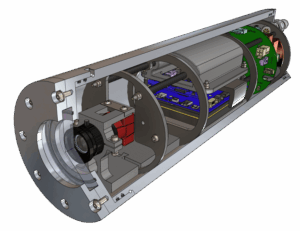The project
Modular Underwater System with Artificial Intelligence to
fight marine pollution

Background context
Marine pollution is an issue of growing global concern: every year, around 8 million tons of plastic waste end up in the oceans, carried from land through rivers and waterways, as well as directly from ships and oil platforms.
Among the negative impacts is the rise in average ocean surface temperature—about 1°C since 1880—which causes the death of plant organisms that provide food and oxygen, drives some marine species to migrate to colder waters while others face extinction, and enables the spread of invasive species. These invasive species, which thrive in warmer waters due to faster maturation and reproduction rates, often outcompete or destroy native species.
MUSAI: a modular and intelligent solution
Equipped with an advanced mechanical architecture, AI algorithms, Computer Vision, and Sensor Fusion, MUSAI can identify, classify, and locate marine pollution and more whatever else in real time.
Thanks to this layout, the data collected by an underwater camera are analyzed on edge by the system and transmitted in real time to a support unit (such as a support vessel or an ROV).

 MUSAI was created to address these challenges.
MUSAI was created to address these challenges.